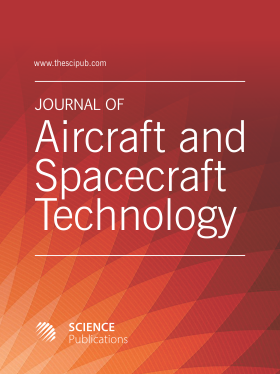An Exoplanet has Smothering Stratosphere without Water
- 1 Bucharest Polytechnic University, Romania
- 2 Second University of Naples, Italy
Abstract
In some earlier works, the authors of the present study have shown that a modern ship should resemble a UFO, an accelerated particle jet propulsion with a particle accelerator on board the ship, accelerating to the very best big. The problem as an idea is clear and simple, but the current technologies we have in the field of fixed particle circular accelerators with which we are working for about 50-60 years on earth are very backward. Here we are somewhere at the beginning of the circular particle accelerator era, in the sense that although we have built such bigger and stronger devices, the technologies used resemble those of the 1960s, so to get huge energies is not enough to prepare more particle passes, but to increase the diameter of the accelerator permanently. This prevents the real construction of a modern circular accelerator of mobile particles that can be mounted on a modern land-based ship. The electronics of the last 20 years have brought some improvements, particularly visible to CERN, but they are still insignificant, so for the development of very powerful, accelerators that can generate particle flows capable of moving an ultra modern ship is still there a long way. I have also stated in other papers in this field that due to the current situation, in order not to waste too much time waiting for our physicists and specialists in electronics to successfully solve these inconveniences that have been dragging in the 1960s, it is necessary to quickly orient ourselves to ships propelled with modern lasers, very strong and especially with very high frequencies, repeating the impulses once every 10-15 s. Modern lasers can quickly pull us out of this impasse and help us build modern, dreamlike ships that reach speeds close to that of light in the best conditions. Until fusion nuclear reactors are well established, we can also use fission power combined with photovoltaic stellar energy. NASA has a note of 10 with congratulations because it has managed to create powerful photovoltaic nets capable of capturing very large energies, concentrated from the dim light of the cosmos from the various stars. At the moment, the most important thing is to build ultra-fast, modern, maneuverable ships to begin exploring our solar system quickly, then our galaxy and finally the universe. We need a star fleet to navigate the entire space of our galaxy quickly, to travel to different stars, planets, satellites, to begin exploring in real time the real universe and then the farthest. Let's start moving to the exoplanets already discovered in real time. For starters, a speed close to that of light will be enough until we are able to find a way to move faster. Energy is another important objective for conquering space. We need energy not only to move ourselves kidnapped through interstellar space, but also to build bases on different planets or satellites, or to begin grounding important planets close to us. A first planet that will need to be tertiary immediately is our neighbor Mars.
DOI: https://doi.org/10.3844/jastsp.2018.65.71

- 5,503 Views
- 2,551 Downloads
- 0 Citations
Download
Keywords
- NASA
- Exoplanet
- Atmosphere
- Stratosphere
- Water
- Modern Ships
